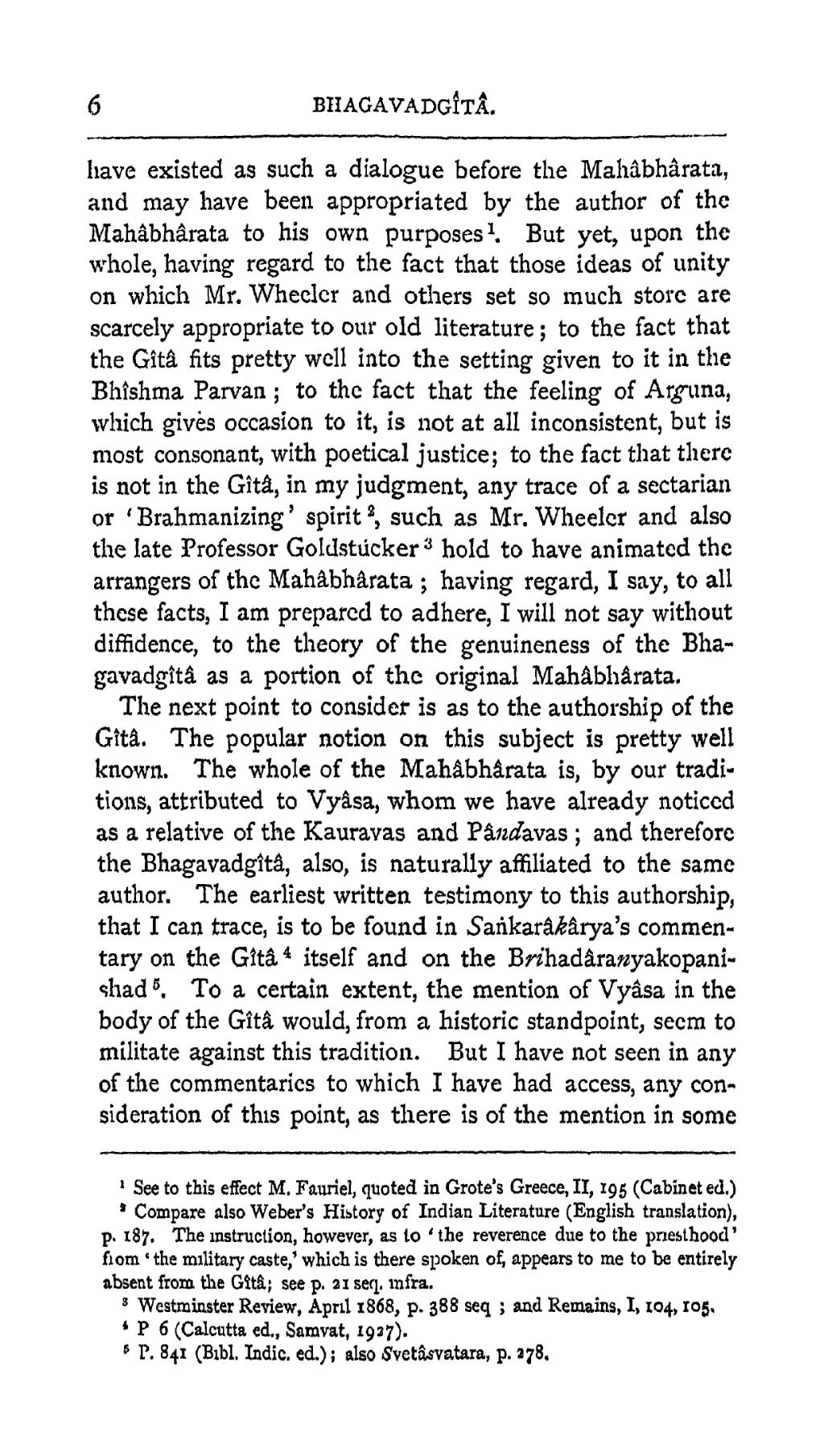have existed as such a dialogue before the Mahâbhârata, and may have been appropriated by the author of the Mahâbhârata to his own purposes[1]. But yet, upon the whole, having regard to the fact that those ideas of unity on which Mr. Wheeler and others set so much store are scarcely appropriate to our old literature; to the fact that the Gîtâ fits pretty well into the setting given to it in the Bhîshma Parvan; to the fact that the feeling of Arguna, which gives occasion to it, is not at all inconsistent, but is most consonant, with poetical justice; to the fact that there is not in the Gîtâ, in my judgment, any trace of a sectarian or 'Brahmanizing' spirit[2], such as Mr. Wheeler and also the late Professor Goldstücker[3] hold to have animated the arrangers of the Mahâbhârata; having regard, I say, to all these facts, I am prepared to adhere, I will not say without diffidence, to the theory of the genuineness of the Bhagavadgîtâ as a portion of the original Mahâbhârata.
The next point to consider is as to the authorship of the Gîtâ. The popular notion on this subject is pretty well known. The whole of the Mahâbhârata is, by our traditions, attributed to Vyâsa, whom we have already noticed as a relative of the Kauravas and Pândavas; and therefore the Bhagavadgîtâ, also, is naturally affiliated to the same author. The earliest written testimony to this authorship, that I can trace, is to be found in Sankarâkârya's commentary on the Gîtâ[4] itself and on the Brihadâranyakopanishad[5]. To a certain extent, the mention of Vyâsa in the body of the Gîtâ would, from a historic standpoint, seem to militate against this tradition. But I have not seen in any of the commentaries to which I have had access, any consideration of this point, as there is of the mention in some
- ↑ See to this effect M. Fauriel, quoted in Grote's Greece, II, 195 (Cabinet ed.).
- ↑ Compare also Weber's History of Indian Literature (English translation), p. 187. The instruction, however, as to 'the reverence due to the priesthood' from 'the military caste,' which is there spoken of appears to me to be entirely absent from the Gîtâ; see p. 21 seq. infra.
- ↑ Westminster Review, April 1868, p. 388 seq.; and Remains, I, 104, 105.
- ↑ P. 6 (Calcutta ed., Samvat, 1927).
- ↑ p. 841 (Bibl. Indic. ed.); also Svetâsvatara, p. 278.
